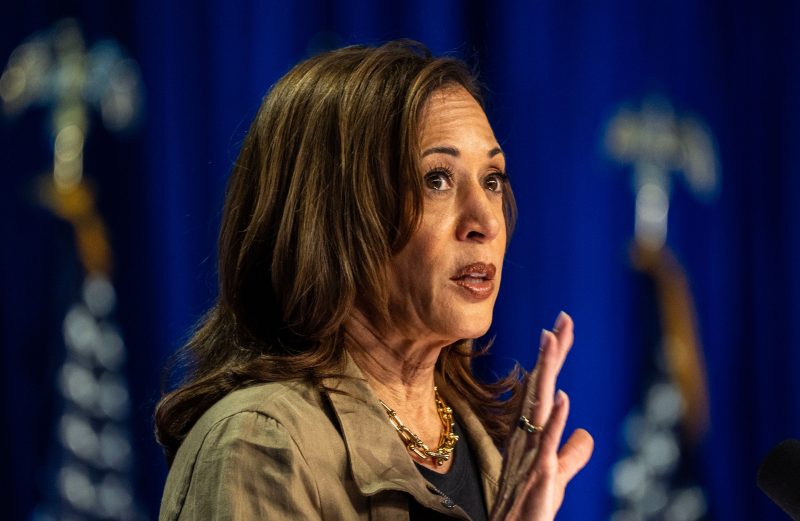In the realm of economic policy and border security, Vice President Kamala Harris and former President Donald Trump stand at starkly opposing ends of the spectrum. Their stark differences in approach to these critical issues, which are central to the political landscape, have raised questions about the potential impacts on both the short-term priorities and long-term goals of the country.
One of the primary areas where Harris and Trump diverge is the approach to economic policy. During his time in office, Trump championed a pro-business agenda, characterized by massive tax cuts for corporations and the wealthy. His administration rolled back regulations and trade agreements while focusing on America First economic nationalism. In contrast, Vice President Harris, along with President Joe Biden, has pursued a more progressive economic agenda. They have proposed significant infrastructure investments, tax increases for the wealthy, and expansions of social safety nets. The divergence in economic philosophies between the two leaders reflects a broader ideological divide within the American political landscape.
Beyond economic policy, Harris and Trump also hold opposing views on border security. Trump’s presidency was defined by his hardline stance on immigration, advocating for the construction of a wall along the U.S.-Mexico border and implementing policies that restricted legal immigration and asylum seekers. In contrast, Vice President Harris has emphasized a more compassionate approach to immigration, focusing on addressing the root causes of migration from Central America and creating pathways to citizenship for undocumented immigrants already in the country. The differing approaches of Harris and Trump reflect distinct visions of America’s role in the world and the values that underpin its immigration policy.
The question that arises from these divergent positions is whether the divide between Harris and Trump on economic and border issues will have a meaningful impact on American society. In the short term, the Biden-Harris administration’s economic policies have already led to significant legislative victories, such as the passage of a COVID-19 relief package and ambitious infrastructure proposals. These policies signal a departure from the Trump era and represent a shift towards a more progressive economic agenda.
On the issue of border security, the Biden-Harris administration has taken steps to undo some of the harsh immigration policies of the previous administration, such as ending the construction of the border wall and rolling back restrictions on legal immigration. However, the challenges at the border persist, and action on comprehensive immigration reform remains uncertain.
Looking ahead, the differences between Harris and Trump on economic and border issues will likely continue to shape the political discourse in the United States. As the country navigates the post-pandemic recovery and confronts ongoing challenges related to immigration and national security, the competing visions of Harris and Trump will influence policy debates and electoral dynamics. The ultimate impact of this ideological divide remains to be seen but will undoubtedly play a significant role in shaping the future of the nation.

